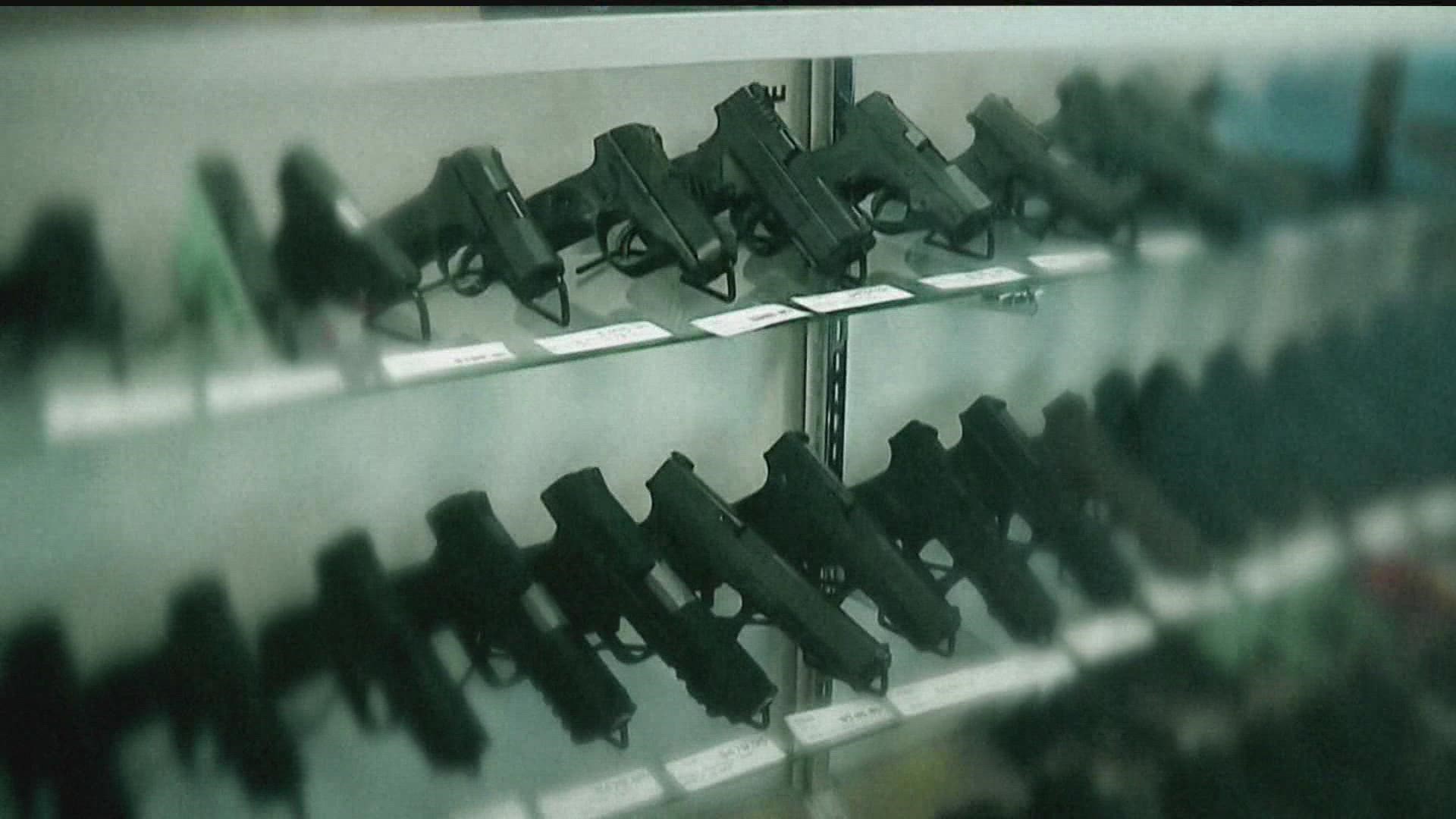MINNEAPOLIS — On the heels of three mass shootings in Highland Park, Illinois, Uvalde, Texas and the other in Buffalo, New York, gun violence and gun laws are top of mind.
And within the last few weeks, the most significant gun legislation passed in Washington with bipartisan support.
The Bipartisan Safer Communities Act brought forth several changes, including funding for state red flag laws, and extended background checks for gun purchasers under age 21.
Along with it, came the closing of what lawmakers, including Senator Amy Klobuchar, have called the "boyfriend loophole."
Klobuchar said the work to close the boyfriend loophole goes back a decade, to the days when she was the Hennepin County Attorney.
"I saw first-hand the deadly interaction between someone who has been already convicted of domestic violence, and then goes off and tries to get a gun," she said. "There is a connection between domestic violence convictions and ultimate mortality and violence from guns."
According to Everytown for Gun Safety -- a gun control advocacy group-- one million women alive today have reported being shot or shot at by intimate partners.
"Six hundred women a year die at the hands of a domestic abuser with a gun," Klobuchar said. "That means one woman every 14 hours in our nation."
The key terms here, being "intimate partner."
Senior Assistant Hennepin County Attorney Rachel Kraker described the group as one that had been excluded from firearms restrictions.
"The definition for a person who was prohibited from purchasing a firearm after a domestic violence conviction would be a person who was married to the victim, shared a child in common or lived in the same residence," Kraker said.
Ten years after the introduction of the bill by Klobuchar, the measure passed as a part of the Bipartisan Safer Communities Act, but at the cost of many lives.
"Mass shootings understandably get the attention that they deserve, but these women are dying alone, oftentimes behind closed doors," Klobuchar said. "And yet there's one every 14 hours, 600 a year. I think about that in terms of the mass shootings; how many people that is and yet they are not the ones that make headlines."
In terms of why domestic violence homicides don't necessarily make headlines, Klobuchar had a guess.
"It's almost a throwback to the past because that's how everyone treated domestic violence way back," she said. "And finally, people came out and started talking about it, and it used to be considered a bedroom crime."
"It used to be something that was seen as a family problem that should be kept behind closed doors, but our victim advocacy organizations and law enforcement prosecutors offices have really worked to try to bring it to the forefront and to tell people that there are resources that exist," Kraker added.
Klobuchar said she knows this closure isn't going to immediately lower intimate partner homicide rates.
"If we can save one life next month, we may not know what it is by the way —some guy convicted of domestic abuse is going to go in and try to get a gun, and he's going to be denied a permit — we may not know when a life is saved," she said. "But overall, we'll see the numbers, and that will take years to see go down."
Some say the loophole has only closed partially because the law allows convicted domestic abusers to apply for a gun permit again if they maintain a clean record for five years.
We have reached out to the Minnesota Gun Owner's Caucus for comment.
Watch more Breaking The News:
Watch all of the latest stories from Breaking The News in our YouTube playlist:

